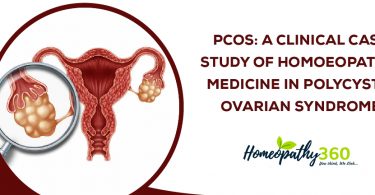
Abstract- This case report examines the clinical presentation, evaluation, and management of a specific developmental disorder of scholastic skills (SDDSS) in an 11-year-old child. The patient presented with spelling mistakes, comprehension difficulties, taking time in learning and forgetfulness of what he has learned which affected his ability to excel in school. Lycopodium was selected on the basis of reportorial totality which led to improvement in scholastic skills as well as his general health. This case report highlights the effectiveness of Homeopathy in SDDSS (Learning disabilities).
Keywords- SDDSS, SLD, Mistakes in study, Monarch Scale
Abbreviations- SDDSS (Specific Developmental Disorders of Scholastic Skills), SLD (Specific Learning Disability), Monarch Scale (Modified Naranjo Criteria for Homeopathy), PGM (Paternal Grandmother), FT-NVD (Full- Term Vaginal Delivery), ICAB (Immediately Cried after Birth), IPR (Inter- personal Relationship), CST (Continue Same Treatment)
Case-
Presenting Complaints-
A 11-year-old male child studying in 5th class was evaluated at school with Spelling mistakes, Matra mistakes in Hindi, Comprehension difficulty (takes time in learning), Forgetfulness of what he has learned. He has also been suffering from fever with cold and cough in the last 3-4 years during winters and change of weather.
Past History: N/S
Personal History:
Developmental Landmarks:
| Mother’s Feed- 3 years | Walking- 1 ¼ years |
| Sitting- 6 months | Speech (one word)- 11-12 months |
| Crawling- 8-9 months | Bladder Control- bed wetting – Upto 7 years of age |
Diet [veg/non-veg]: Veg
Habits /addictions: N/S
Environment at home & school: Good
Hobbies: Cycling, Dancing, Singing
Appearance: Lean & thin, dark complexion
Family History: PGM- Hypertension
Gynecological & Obstetrics History of the Mother of the Patient:
Gynecological History- FT-NVD, ICAB
Life Space:
The patient is the youngest child. He lives in a Joint Family and has good IPR with his mother and grandmother. He is an obedient child. When he was young, he used to break things. He cries when he gets angry but can be persuaded easily. He can’t sleep alone. He is a fictious liar and always makes up stories about school and everything. He is quite mischievous. He beats children of his age when angry and is a chatterbox. He likes racing and can’t stay at one place. He is a jolly natured child. He has a fear of dolls and won’t go anywhere near them.
Physical Generals:
| Appetite: Gets hungry after 1-2 hours of eating, | Thirst:5-6 glasses / day in winters
9-10 glasses of cold water in summers |
| Cravings: Ice- cubes, fast food, Bhujia, cream biscuits | Aversions: N/S |
| Urine: D- 4-5/ N- 0 | Stool: Once/ day, Satisfactory |
| Perspiration: Profuse++, non- offensive, non- staining | Thermal Reaction: Hot |
| Sleep: 10:30 PM- 8 AM
Wants company, snoring during sleep |
Dreams: Nightmares, Ghosts- once/twice per month, does not wake up after nightmares |
| General Sensations: N/S | General Modalities: N/S |
PHYSICAL EXAMINATION:
General Examination:
| TEMP: 98.60 F | WEIGHT: 30 Kg |
| PULSE: 92 Beats/Min | TONGUE: Slight white coated |
| RR: 17/Min | NAILS: Nail biting |
| HEIGHT: 4’6” | LYMPHNODES: NAD |
Systemic Examination:
| RESPIRATORY SYSTEM:
B/L airways Clear |
SKIN & GLANDS:
NAD |
| CARDIOVASCULAR SYSYTEM:
S1S2 Heard, no added sound |
GENITO-URINARY SYSTEM:
NAD |
| NERVOUS SYSTEM:
Conscious & well oriented to Time, Place, Person |
MUSCULO-SKELETAL SYSTEM:
NAD |
| GASTRO-INTESTINAL SYSTEM:
P/A- Soft & non- tender |
Analysis and Evaluation of Case:
| Mental Generals | Physical Generals | Particulars |
| – Mistakes in spelling
– Forgetfulness – Difficulty in Comprehension – Mischievous -Talkative -Hyperactive – Beats children of his age when angry – Can’t sleep alone, Fear of Night – Cries easily -Nail Biting habit |
– Gets hungry after 1-2 hours of eating
– craving for Ice- Cubes, Fast food, Bhujia and cream Biscuits -Perspiration- Profuse -Dreams- Nightmares Thermal- Hot Sleep- Snoring in sleep |
– Fever with cough and cold
<winters, change of weather |
Totality of Symptoms:
Spelling mistakes
Comprehension difficulty
Forgetfulness
Mischievous
Gets hungry after eating
Desire for ice cubes, fast food, cream biscuits and bhujia
Can’t sleep alone, desire for company
Snoring during sleep
Nightmares during sleep
Nail biting Habit
Fever with cough and cold < winters, change of weather
Repertorial Totality:

Materia Medica Differentiation:
Patient is hyperactive, intellectual, loquacious and only beats children of his age. Thermal is hot and he is fearful in nature. Perspiration is also profuse. Calc. and Phos. are ruled out on the basis of thermal. Furthermore, weak memory, Dyslexia, spells or writes wrong words and syllables, fatigue from intellectual exertion is also covered by Lyco.1,2 So, Lycopodium is selected.
Selection of Medicine;
Lycopodium Clavatum
Pososlogy
1 M (It is selected as the sensitivity at the mental level is high and no structural changes are present. Also, SDDSS is a neurodevelopmental disorder. Infrequent repetition of doses is required as the susceptibility of the patient is high. So, it could be given fortnightly.)
Prescription:
Rx,
Lycopodium Clavatum 1M/ 1 Dose/ Alt. week
Rubrum 200/6 Doses/ HS
X 1 Month
Follow Up Criteria:
- Appetite- frequency and satisfaction
- Snoring
- Nightmares
- Fever with cough and cold
- Forgetfulness
- Spelling Mistakes
- Comprehension- Time taken in learning
| Date | 1 | 2 | 3 | 4 | 5 | 6 | 7 | Prescription |
| 16-2-24 | SQ | > | > | > | >10% | SQ | >10% | Rx
CST X 1 Month |
| 11-3-24 | SQ | SQ | > | < | >10% | > | >10% | Rx
CST X 1 Month |
| Craving for ice- cubes++, Ht- 4’6.5”, Wt.- 28.2 Kg | ||||||||
| 5-4-24 | Decreased | Ab | Ab | Ab | > | > | > | Rx
CST X 1 Month |
| Thirst- 7-8 glasses/ day, Ht- 4’6.5”, Wt.- 29.4 Kg | ||||||||
| 6-5-24 | Good | Ab | Ab | Ab | > | > | SQ | Rx
CST X 1 Month |
| 31-5-24 | Good, no midnight cravings present | Ab | Ab | Ab | > | > | > | Rx
CST X 1 Month |
| Wt- 29 Kg | ||||||||
| 28-6-24 | Good | Ab | Ab | Ab | > | > | > | Rx
CST X 1 Month |
| Ht- 4’7.5”, Wt.- 29 Kg | ||||||||
Pre- Assessment

Post Assessment

MODIFIED NARANJO CRITERIA FOR HOMOEOPATHY

Conclusion-
This case highlights the effectiveness of homeopathy managing learning disabilities, often considered incurable in conventional medicine. The child experienced significant improvements in writing skills, handwriting, and academic performance through individualized homeopathic treatment with Lycopodium Clavatum. The Monarch scale also indicates a link between the homeopathy and treatment outcome which also shows the scope of Homeopathy in managing such cases.
References-
- Murphy R. Lotus Materia Medica. New Delhi, India: B Jain; 2021
- Clarke JH. A Dictionary of Practical Materia Medica. Sittingbourne, England: Homoeopathic Book Service; 1991




